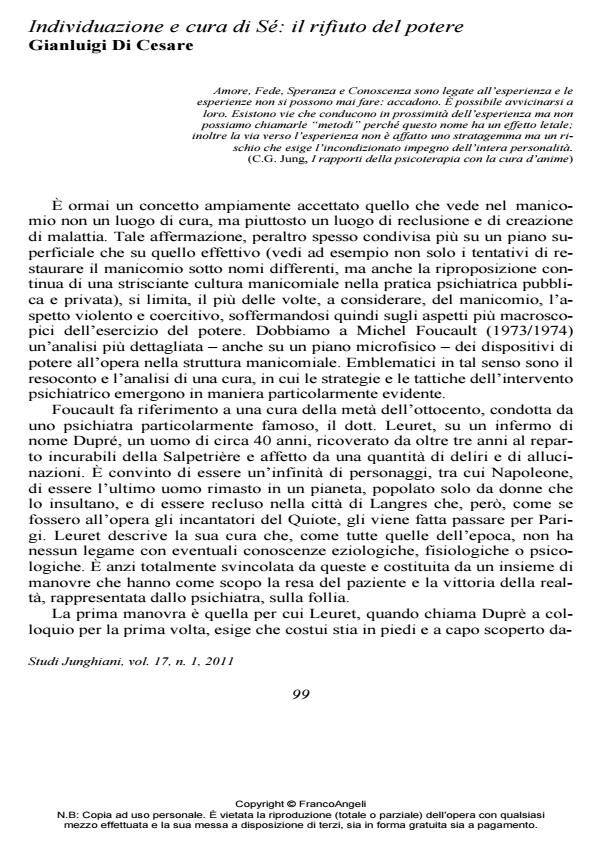Individuation and Self-Care: the Rejection of Power
Journal title STUDI JUNGHIANI
Author/s Gianluigi Di Cesare
Publishing Year 2011 Issue 2011/33 Language Italian
Pages 15 P. 99-113 File size 332 KB
DOI 10.3280/JUN2011-033008
DOI is like a bar code for intellectual property: to have more infomation
click here
Below, you can see the article first page
If you want to buy this article in PDF format, you can do it, following the instructions to buy download credits

FrancoAngeli is member of Publishers International Linking Association, Inc (PILA), a not-for-profit association which run the CrossRef service enabling links to and from online scholarly content.
The idea that the story of psychiatry has always been linked to power is sufficiently agreed and known and does not require, at least apparently, further analysis. What is less known, or more conveniently, sufficiently removed, is the fact that this is most of the times linked exclusively to the problem of the use of violence, leaving in the background all the dynamics of the power effectively operating. This problem is even more real if the analysis is not only limited to psychiatry in a narrow sense, but is extended to psychoanalysis or to the different psychotherapies. The thesis of this work is that Jung’s thought detaches from all the others, having its absolute specificity that constitutes both its inestimable value and its biggest limit on the point of view of operation and possibility to transfer it, since it surrenders, from the very beginning to any exercise of power and offering instead a continuous search based on experience. For this reason the thought and the work of Jung will enter a path that we could define of "Self-Care" in contrast to those paths that, privileging explicative and interpretative aspects, are related to a "Self-knowledge".
Keywords: Power, Psychiatry, Self Care, Spiritual Knowledge, Alchemy, Individuation
Gianluigi Di Cesare, Individuazione e cura di Sé: il rifiuto del potere in "STUDI JUNGHIANI" 33/2011, pp 99-113, DOI: 10.3280/JUN2011-033008